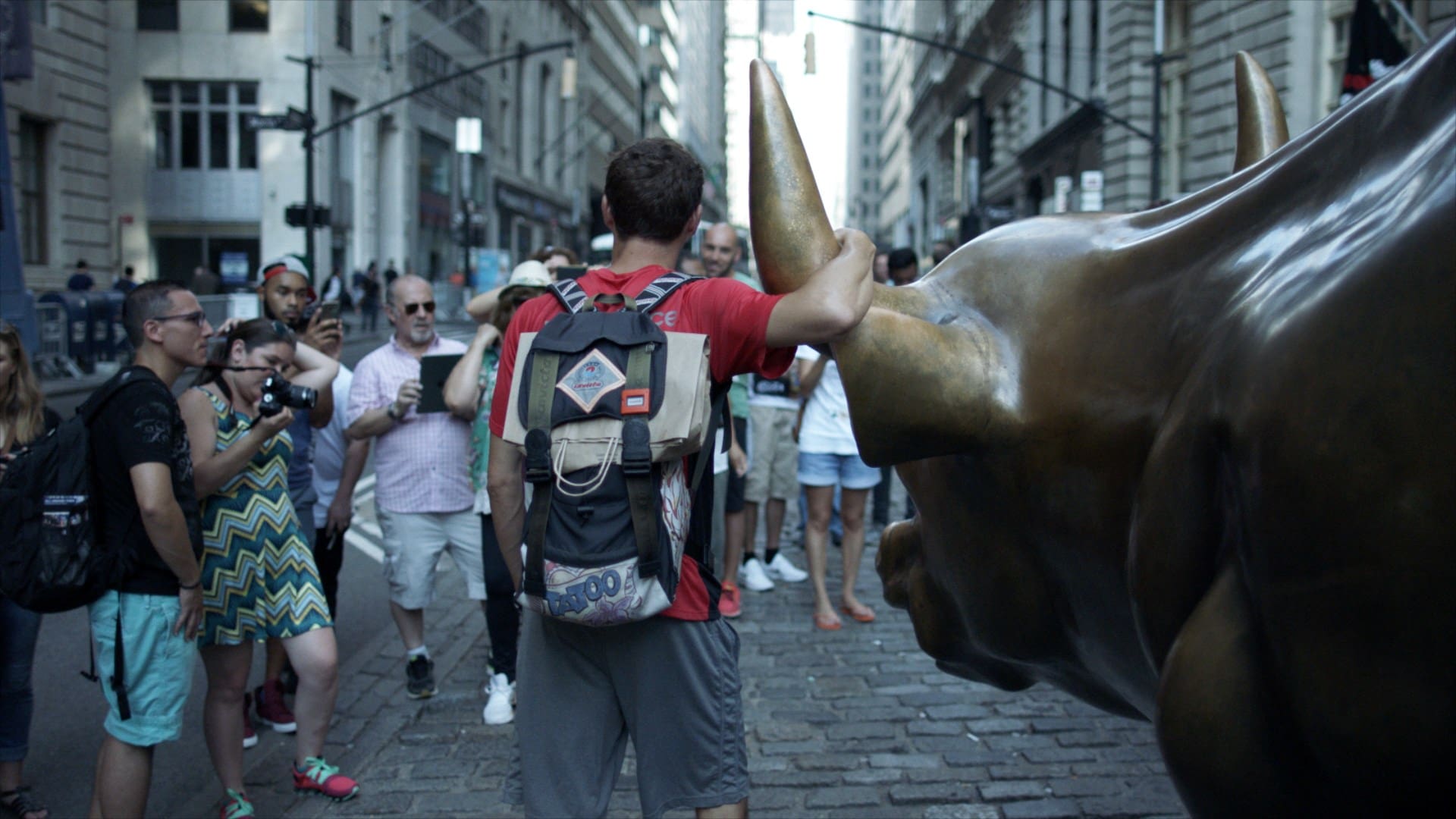
The American economy has never quite recovered from 2008’s burst housing bubble. Lots of investors–both big and small–lost money and the few who didn’t got to learn all about it in 2015’s The Big Short. In that film, director Adam McKay followed fictionalized version of the real life investors who realized millions of Americans were going to default on their sub-prime housing loans and turned a profit off of them. Director Jed Rothstein does something similar in his new documentary The China Hustle. This time, however, the bad investments aren’t based in the American housing market, but in fraudulent Chinese companies.
Rothstein does a brilliant job explaining the situation in the film, but in short, when the housing bubble burst, all that capital had to go somewhere and it went straight into Chinese investments. However, foreigners cannot invest directly in the Chinese market. So, Chinese companies had to do what’s called a “reverse merger,” in which a Chinese company buys a US-based shell company to allow them to trade on the US market. From there, things get a little sketchy, but in essence, these companies would claim higher profits and more assets than they actually had, inflating stock prices. And if nobody had discovered that the companies were cooking their books, they would have gone on turning a profit. But that’s where men like Dan David come in.
David (who is the Steve Carell of this piece) is the CIO of a Philadelphia-based hedge fund and while looking into a company called China Green Agriculture, discovers that it’s a total fraud. Mixed with interviews with David, Rothstein uses hidden camera footage taken by David’s associates to reveal the investigation and it’s like a real-life heist movie. Perhaps the most absurd moment comes when, in order to find out if the company really has as many permanent employees as they claim, the undercover investigator claims to be a tea salesman and asks the guard at the front gate how many samples they would need to cover every employee. In a fictional film, it would seem ridiculou, but it’s all true here and part of what makes Rothstein’s film so compelling is just how outrageous the story he’s telling is.
From there, David and a number of other investors engage in what’s called “short-selling,” which basically boils down to betting that a stock’s price will go down. It’s a lot to keep track of, but Rothstein is a clever editor and the film flows so that the constant information dump never becomes overwhelming. One of Rothstein’s best moments comes early, when an investor whose face is obscured while he talks about the wild parties his firm used to throw while they were selling stocks for these fraudulent Chinese companies to their clients. We see his silhouette and what seems to be stock footage of a southern California surfer, but we don’t see the speaker’s face until he says that the company had a “frat house” mentality and he’s revealed to be exactly the tanned, handsome, dirty-blonde-haired surfer you’d expect him to be.
Rothstein’s cleverest choice, though, is that he doesn’t just focus on the brash short-sellers, but how the con affects the average investor. One of them is Ray from Tennessee, who lost $150,000 after his shares in a Chinese company dropped from $9 to 12 cents. His retirement nest egg was decimated and at 68, that’s a pretty horrifying financial future. It’s a sobering example, but even more disturbing is that the bubble hasn’t quite burst yet and the risk still doesn’t outweigh the reward. China has no laws against defrauding foreign investors and almost none of the Americans who set up the cons have faced any punishment.
Rothstein owes a lot to The Big Short. His editing style and even some of the personalities he assembles in his interviews would fit right into Adam McKay’s, fast-talking, heightened world. However, that movie was about a bubble that had already burst. The China Hustle is nothing short of a warning. Unfortunately, without a star-studded cast, the average investor won’t know about the way short-selling of China-based stocks will effect their portfolio until its too late.
Rating: 8.5/10

